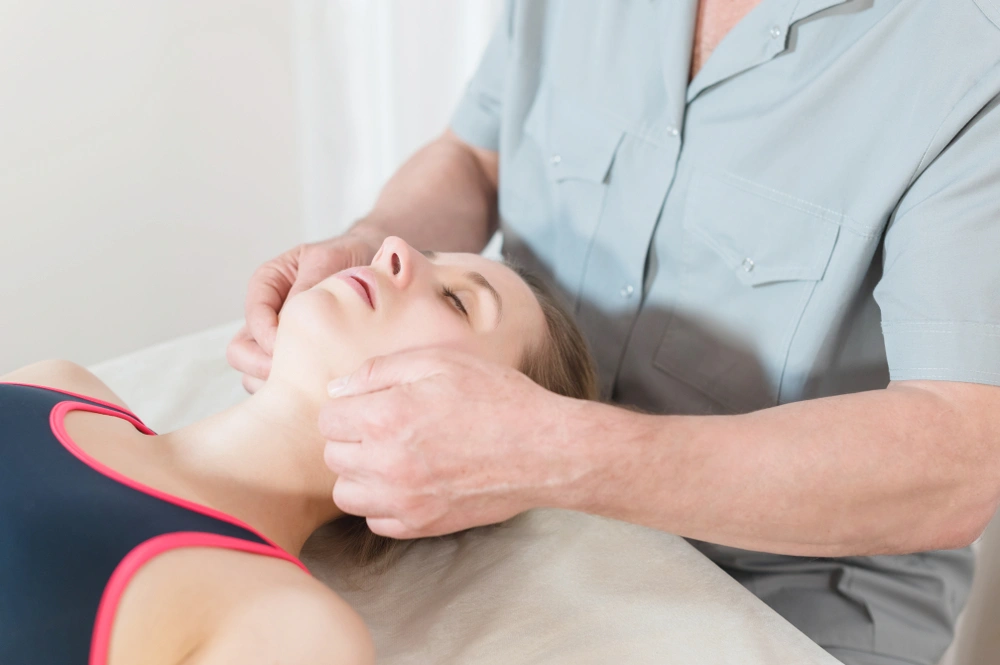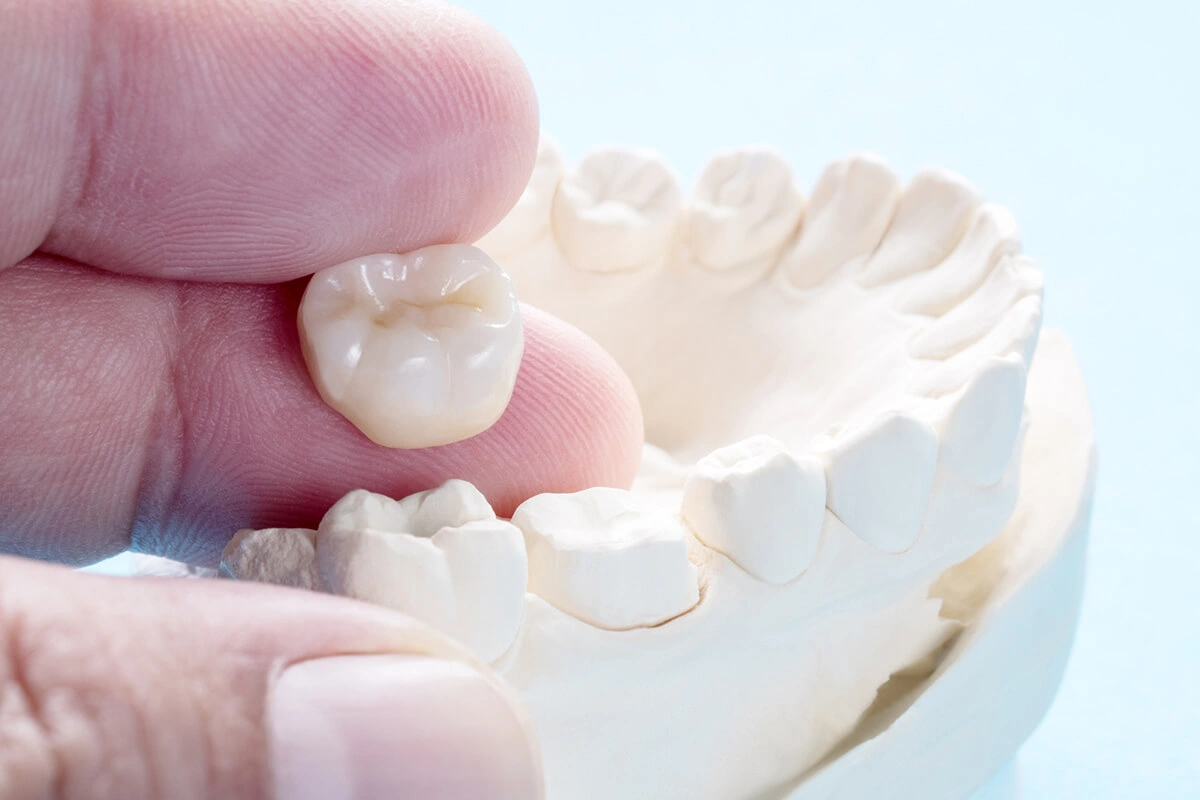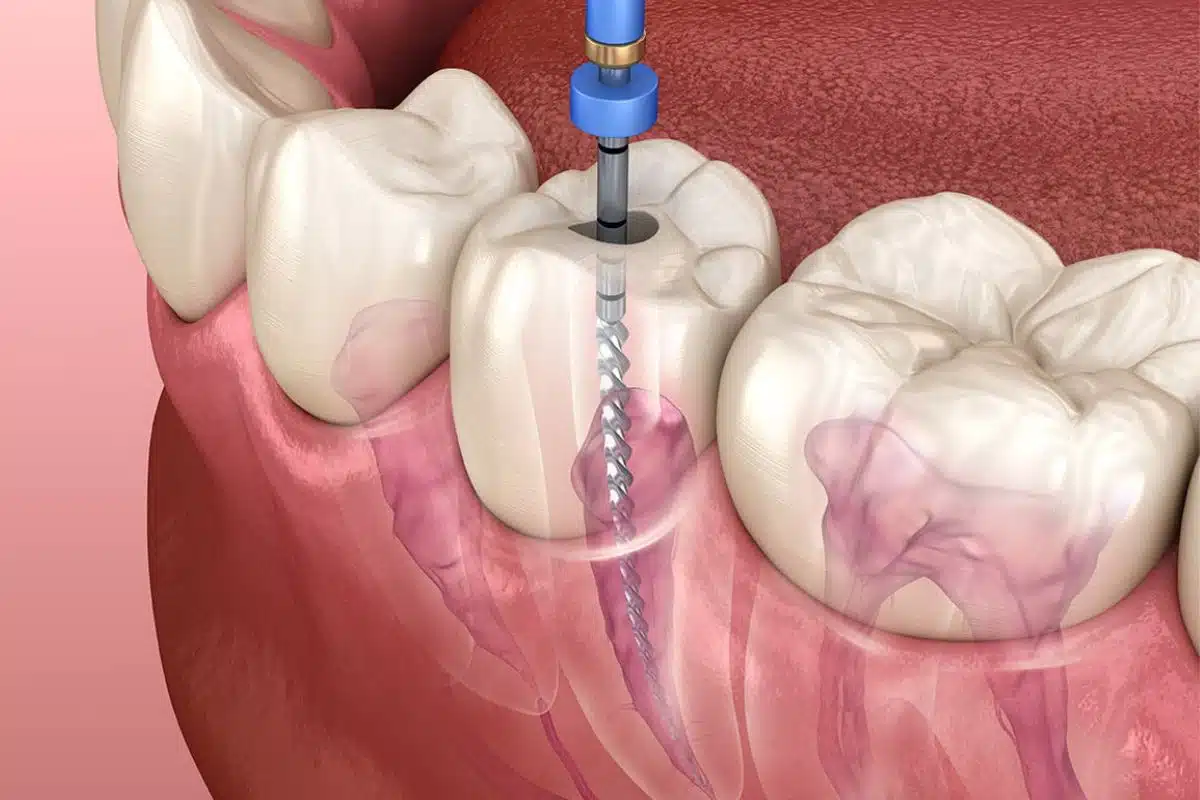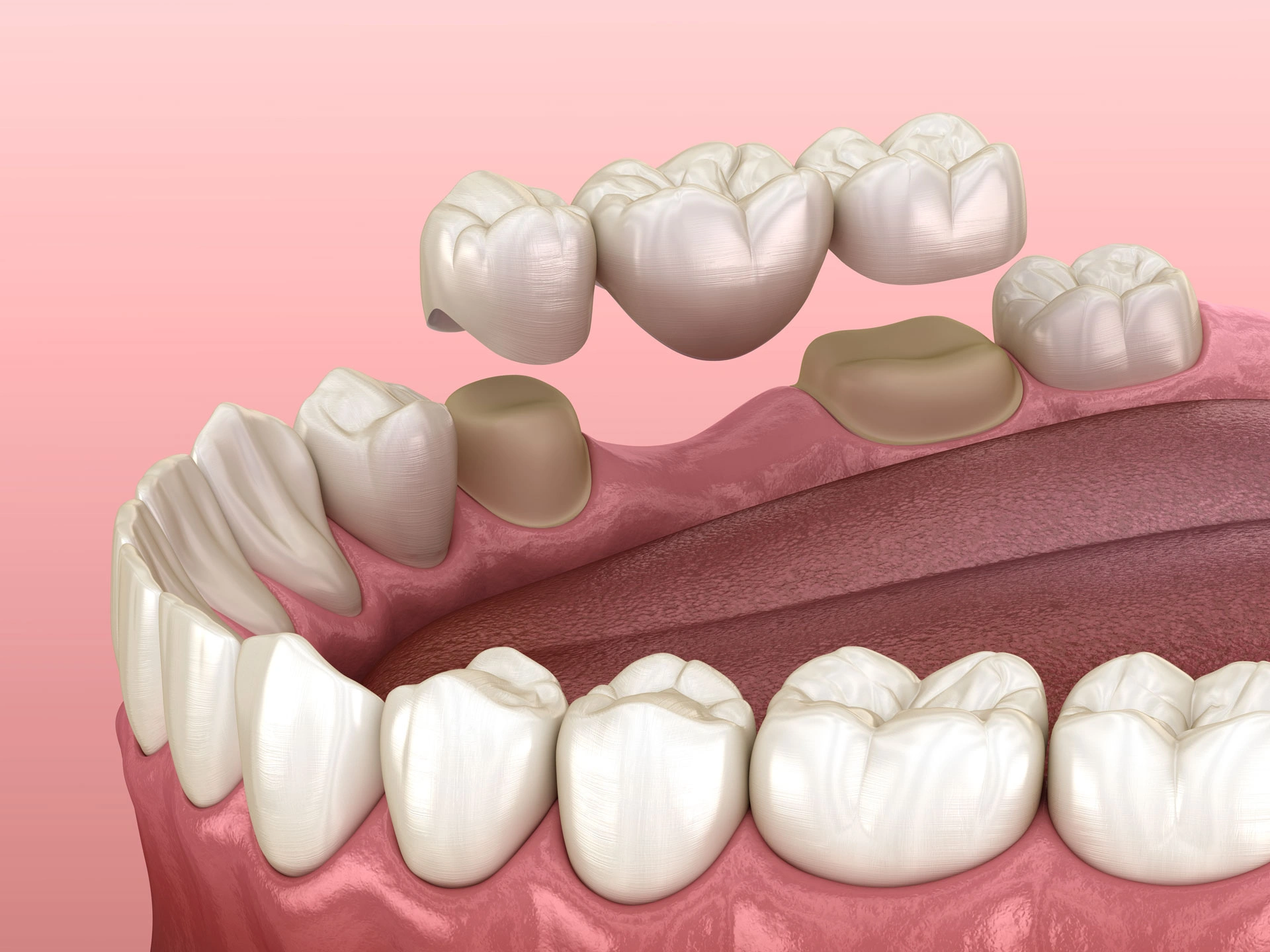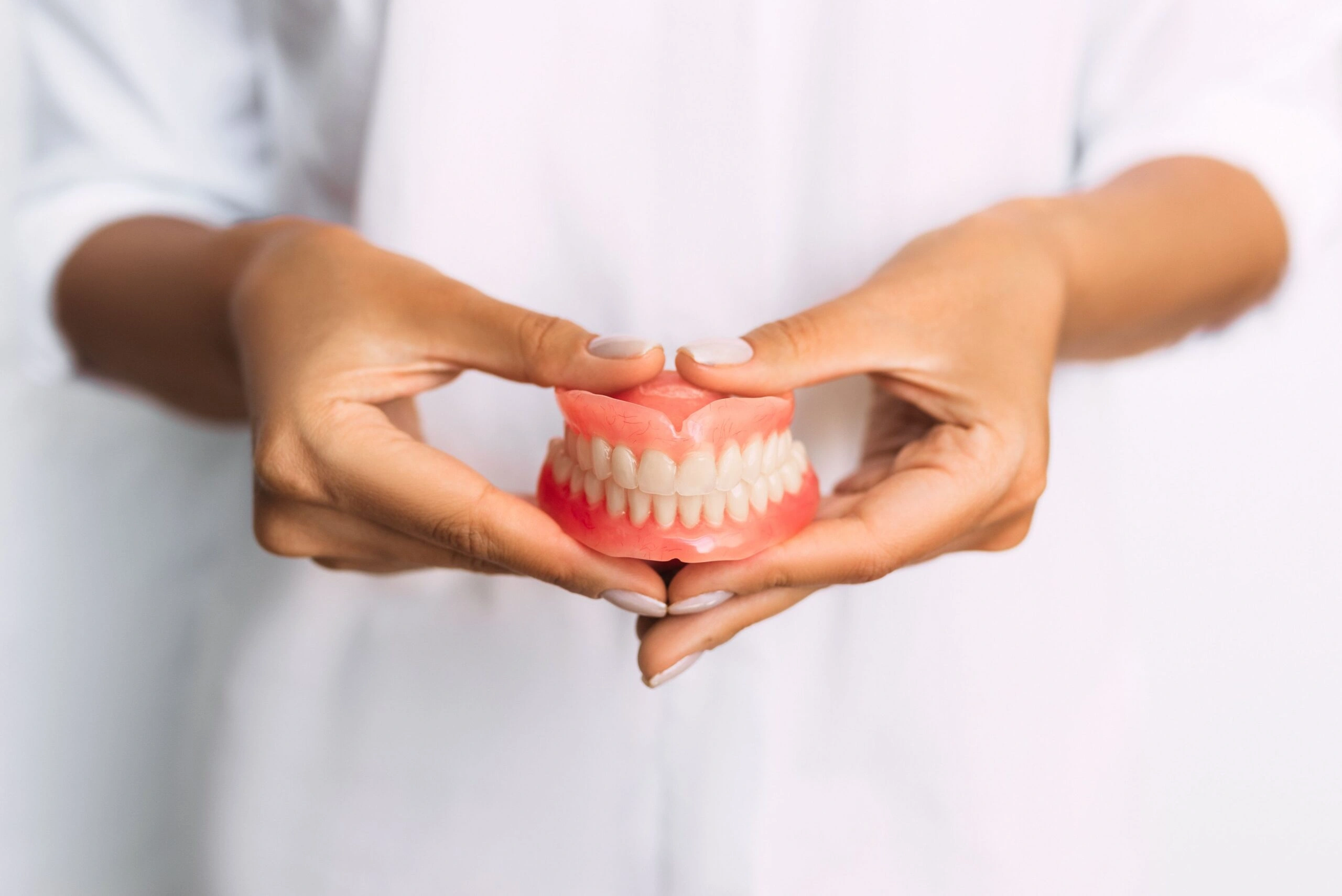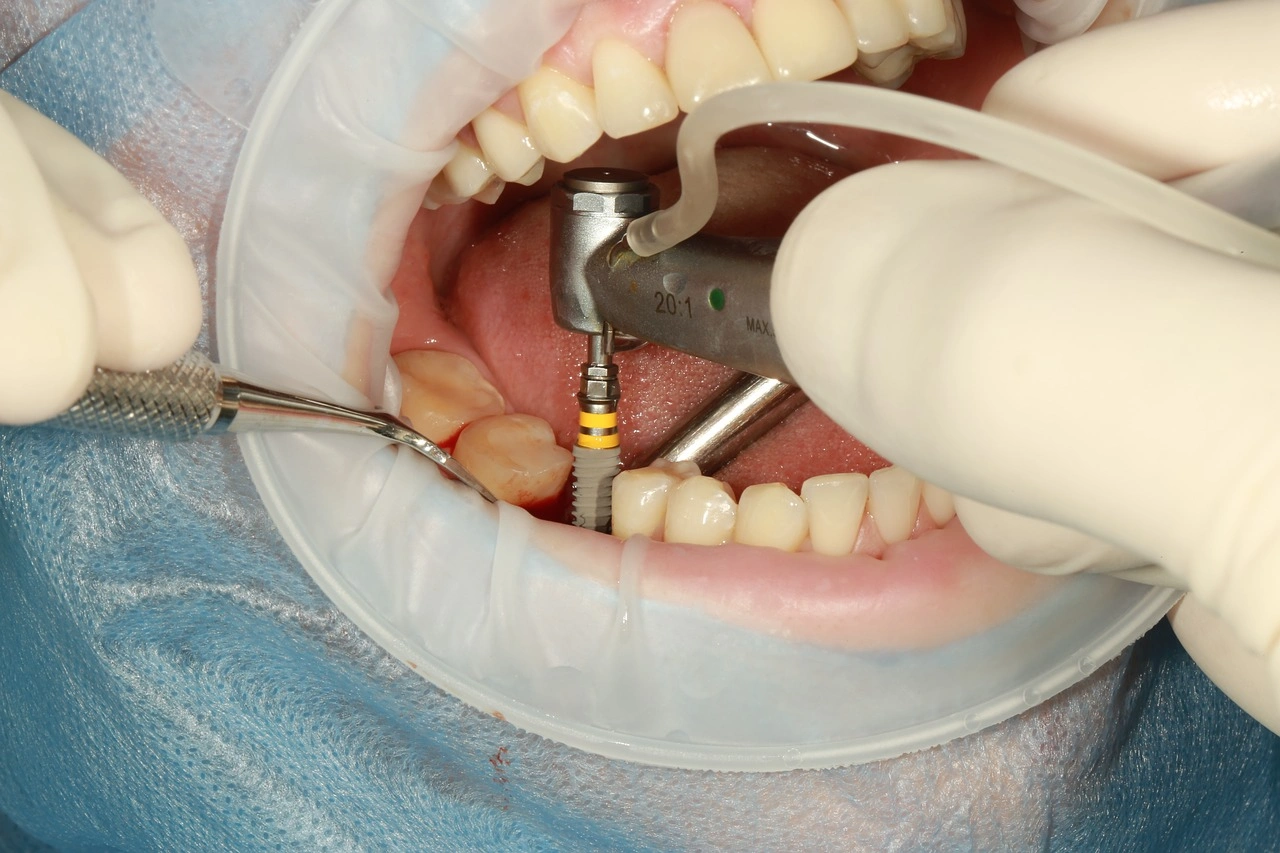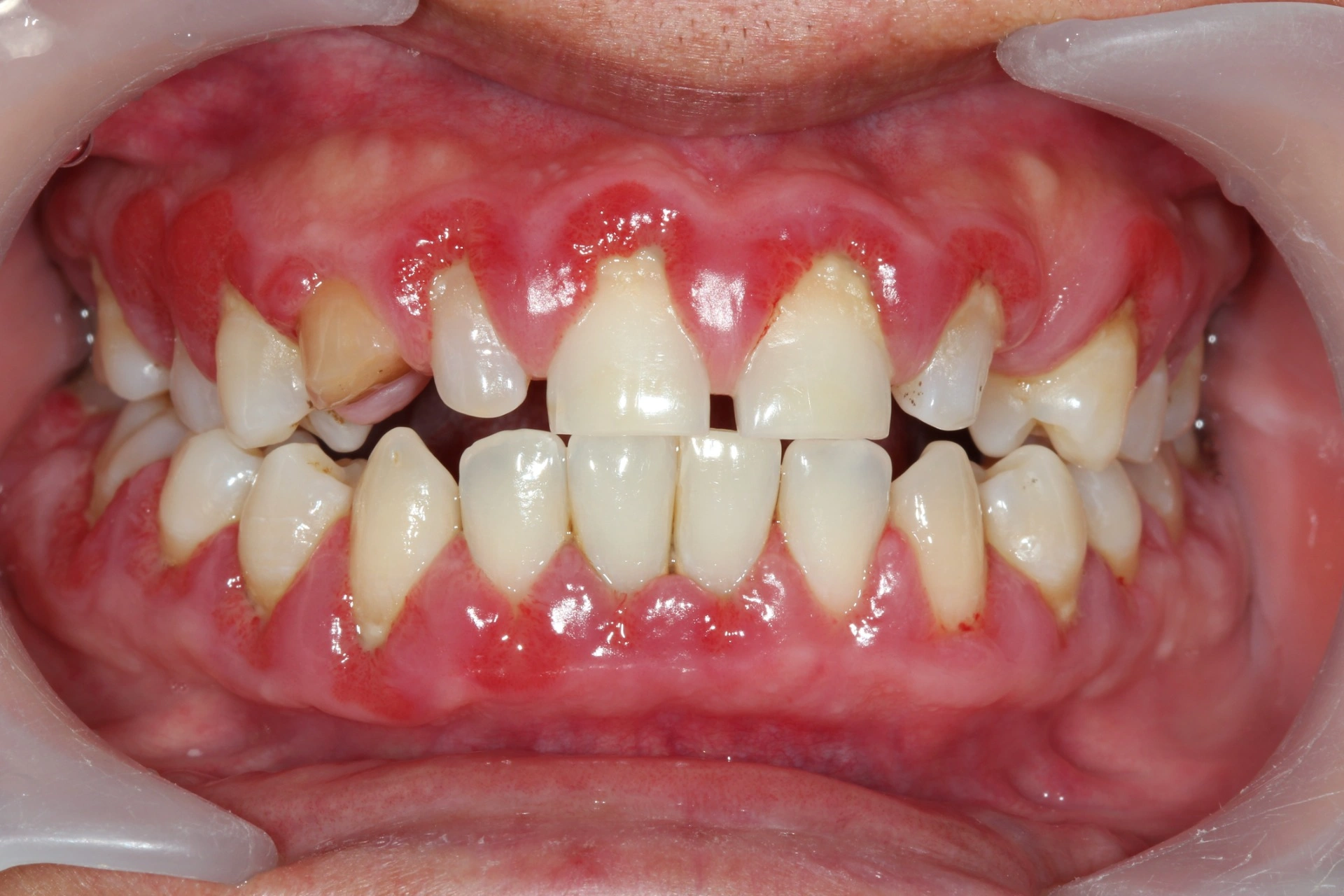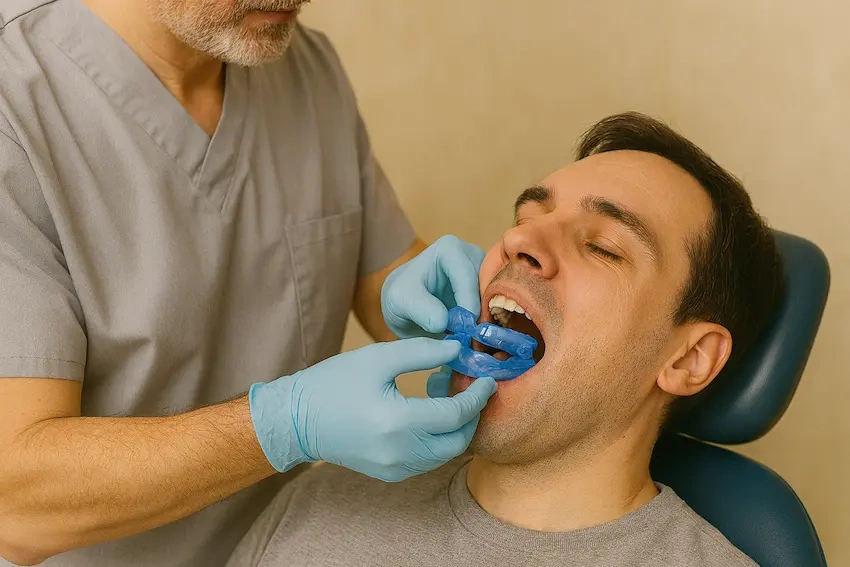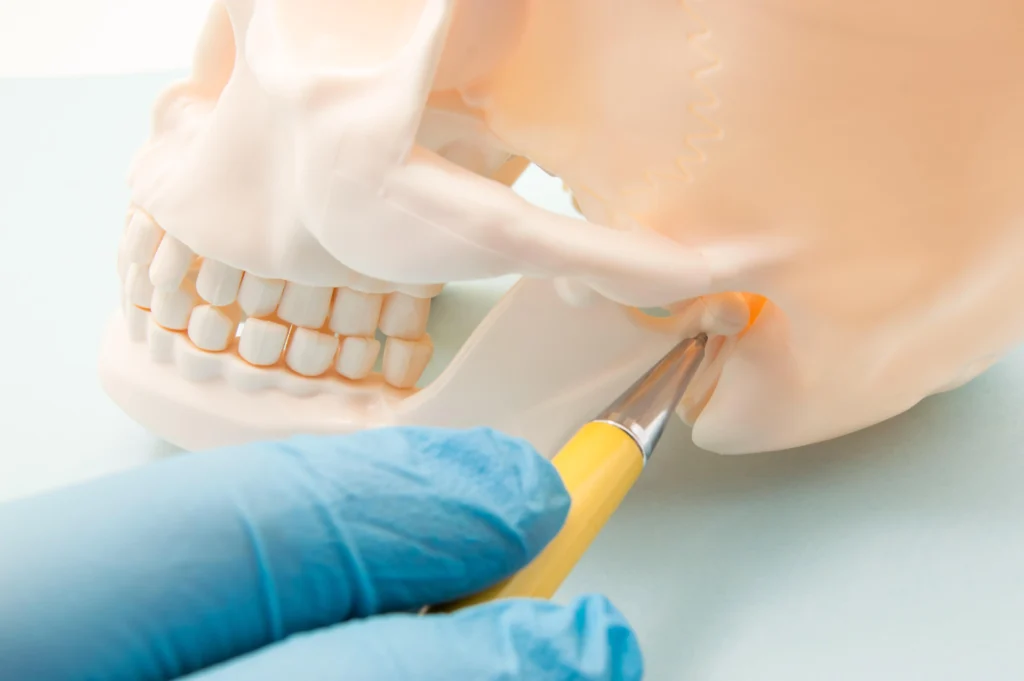TMJ Treatment Meridian Patients Trust for Lasting Comfort
Jaw pain, headaches, and constant clenching or grinding can take a serious toll on daily life. Many patients tell us they wake up with tension headaches, sore jaw muscles, or ear pain that they can’t explain. Others live with clicking or popping in the jaw, trouble chewing, or pain that travels into the face, neck, or shoulders. TMJ issues can be frustrating and exhausting, and patients often go months or even years without real answers.
At SmileWorks Dental, we provide gentle, personalized TMJ treatment Meridian families depend on to diagnose the cause of jaw pain and deliver meaningful relief. Instead of masking symptoms or guessing, we use advanced bite analysis, digital imaging, and airway-focused evaluation to identify the real mechanical and muscular sources of TMJ dysfunction.
Whether your symptoms are caused by grinding, bite imbalance, stress, or airway obstruction, we create a treatment plan designed to restore comfort and natural function. If jaw pain is affecting your ability to sleep, eat, focus, or enjoy life, relief is possible.
Understanding TMJ Disorders and Symptoms
TMJ disorders occur when the jaw joint and surrounding muscles aren’t functioning correctly, leading to pain, inflammation, and pressure throughout the face and head. Many patients don’t realize that symptoms like ringing in the ears, jaw locking, or worn-down teeth are signs of TMJ dysfunction that need professional attention.
Patients often visit us searching for jaw pain relief after experiencing chronic discomfort that hasn’t responded to over-the-counter treatments or rest. The temporomandibular joint is one of the most complex joints in the body, and when it’s misaligned or strained, the effects can radiate throughout your entire head, neck, and shoulders. Some patients describe the pain as constant, while others experience it intermittently during chewing, speaking, or waking up.
Without proper treatment, TMJ dysfunction can lead to cracked teeth, broken dental work, and long-term joint damage that becomes progressively harder to treat.
Protecting Your Teeth and Jaw from Grinding
Grinding and clenching, especially at night, place excessive stress on the TMJ and surrounding muscles. Many patients wake up with sore jaws, headaches, or even chipped teeth without realizing they’ve been grinding all night. A custom teeth grinding guard provides a protective barrier that cushions the teeth, reduces muscle tension, and prevents further damage to both your teeth and jaw joint.
Unlike generic drugstore guards that can be uncomfortable or poorly fitting, our custom-fabricated guards are designed specifically for your bite and jaw structure. They’re comfortable enough to wear all night, durable enough to withstand grinding forces, and effective at reducing the harmful effects of bruxism. Most patients notice significant improvement in morning pain and tension within just a few days of consistent use.
If you wake up with headaches, facial soreness, or notice your teeth are wearing down, a custom guard may be exactly what you need.
Relief from Chronic Tension Headaches
Many people don’t realize their chronic headaches are actually caused by TMJ dysfunction. When jaw muscles are constantly tense from clenching, grinding, or misalignment, that tension radiates upward, causing debilitating headaches that often feel like migraines. If you’ve tried migraine medications without success or noticed your headaches are worse in the morning, TMJ headache treatment may be the answer you’ve been searching for.
By addressing the root cause, the jaw dysfunction itself, we can often eliminate or dramatically reduce headache frequency and intensity. Treatment typically involves a combination of custom oral appliances, bite adjustment, and muscle relaxation techniques that allow your jaw to return to its natural, comfortable position.
Many patients tell us that resolving their TMJ issues finally gave them relief after years of unsuccessful headache treatments.
Custom Bite Guards for Joint Protection
An occlusal guard is a precision-crafted dental appliance designed to protect your teeth and jaw joint from the damaging effects of grinding and clenching while also helping to reposition your bite into a more comfortable, balanced alignment. These guards are custom-made from impressions of your teeth, ensuring a perfect fit that’s comfortable for all-night wear.
Beyond just protecting tooth enamel, occlusal guards help relax overworked jaw muscles and reduce inflammation in the TMJ. They work by distributing bite forces evenly and preventing your teeth from grinding together, which gives your jaw joint time to heal and recover from chronic stress and tension.
Most patients adapt to their guard quickly and experience noticeable improvement in pain, clicking, and muscle soreness within the first few weeks of consistent use.
Advanced Neuromuscular Approach
For complex or persistent TMJ cases, neuromuscular dentistry offers an advanced treatment approach that goes beyond traditional bite guards. This specialized field focuses on achieving optimal jaw position by measuring muscle activity, joint function, and bite alignment using computerized analysis. The goal is to find your jaw’s ideal resting position where muscles are relaxed and the joint functions without strain.
Neuromuscular techniques often involve specialized diagnostic equipment that records jaw movement, muscle tension, and joint sounds to create a comprehensive picture of your TMJ function. Treatment then focuses on gradually repositioning your jaw to this ideal location using custom appliances, sometimes combined with restorative dentistry to permanently establish the correct bite relationship.
This approach is particularly effective for patients who haven’t found relief with traditional guards or who have complex symptoms involving multiple areas of pain and dysfunction.
Our Comprehensive Treatment Approach
TMJ treatment shouldn’t be rushed or generic. At SmileWorks Dental, we begin with a comprehensive exam that includes muscle and joint evaluation, bite alignment assessment, and digital imaging using Panorex digital x-rays and intraoral cameras. This detailed approach lets us pinpoint the cause of dysfunction rather than guessing or treating symptoms alone.
For patients whose TMJ symptoms stem from airway obstruction or sleep apnea, we collaborate with airway treatment plans that address the underlying root cause, not just the pain. This comprehensive approach ensures you receive treatment that truly resolves your symptoms rather than just managing them temporarily.

